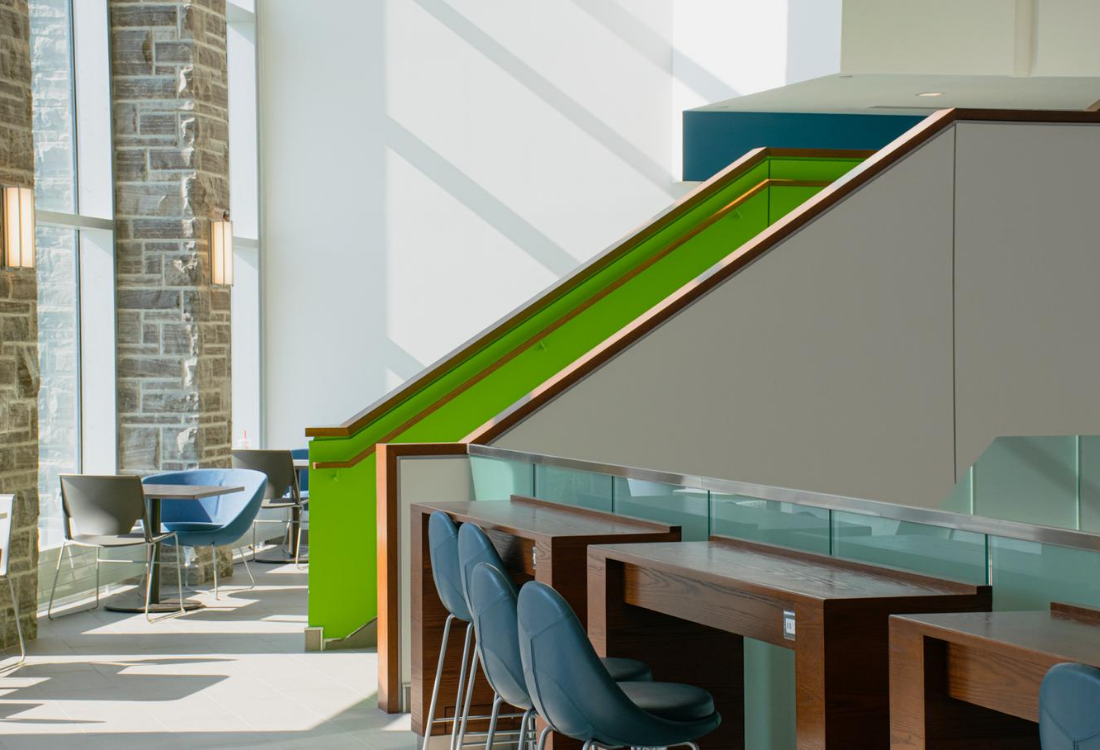My USRI Reflection: Creating The George Floyd Project
 Written by: Matthew Dawkins
Written by: Matthew Dawkins
Photo by: Adobe Stock
Prior to my supervisor telling me about the public humanities, I hadn’t heard of the emerging field before, but my personal and professional work had always been related to discourse surrounding civic engagement, community building, and grassroots advocacy, especially with the university as an ally to these causes. At Western University, I had done similar programming building community both in and out of the university. My experience then would function as a suitable backdrop to contextualize my research on public humanities including its advantages and drawbacks. My research, as my supervisor and I saw it, would then be to investigate the efficacy of public humanities. This included its history, definition, aims, objectives, how it functions in a community, and more relevantly, its place in London, Ontario.
Throughout the progress of the research, it became clear that we had to take a dual approach. One on hand, we had to utilize traditional research practices such as literature reviews and annotated bibliographies. However, on the other hand, it was also necessary that we engage with the public humanities in a practical way given the nature of the field. To meet this need, we partnered with the Embassy Cultural House (ECH), a previously community-driven gallery re-envisioned today as a virtual artist-run space and community website. At ECH, I attended their weekly meetings, events, and participated in the planning of their projects and programming. I was also given the room to run my own community-based project: The George Floyd Project.
The George Floyd Project is a reflection on the murder of George Floyd at the one-year commemoration of his death. Remembering his life, the elevated Anti-Black racism discourse around his death, and the resurgence of the Black Lives Matter movement in 2020 were huge aspects of the project. In addition, to those more research-based expository pieces I was also interested in understanding how local Black artists and community organizers were impacted by these events. I wanted to use ECH’s platform and resources to delve into the London community in order to, not only showcase the work of local Black people in London but also start necessary conversations with them about their priorities, creative process, and transgressions managing their work in a predominantly white city. Therefore, The George Floyd Project also consisted of the Black Artist Spotlight and Local Powerful Black Voices. The former is a showcase of the art created by Black artists in London over the past year and the latter is an interview series wherein I interviewed Black community leaders and organizers in London to ask their perspective on the racial tensions put on further display since the murder of George Floyd and what that means for a predominantly white city like London and the Black people living in it.
The first eight weeks of my research consisted of working on the George Floyd Project and partnering with the ECH, using this practical experience as a threshold for what public humanities can really look like, and comparing this vision with my research on the history and definitions of the field.
My expectation for the internship at its commencement was that I’d not only learn more about the public humanities but also evaluate it as a viable future for the Arts and Humanities faculty. With terms such as ‘experiential learning’ becoming requirements in programs like the School for Advanced Studies in Arts and Humanities (SASAH) at Western I was intrigued by the idea of re-imagining the sort of education the university will provide to students and what we can start to think as necessary components to that learning. Thus far, I think public humanities is necessary for efforts concerning reconciliation and advocacy but moving forward I’m interested in investigating tangible ways the field can be implemented at the academy and what that means for faculty, administrators, and students alike.
The second half of my research internship consisted of completing the George Floyd Project at the Embassy Cultural House and combining that experience with the knowledge gained from researching the public humanities to further explore the potential of the field and more so, gain a deeper understanding of the practical ways the university and the community can join to develop public humanities programs. While concluding the George Floyd Project enabled me to gain first-hand experience in running a community-based program, my readings further clarified the philosophy behind the public humanities and made apparent the solutions to many of the problems I encountered.
The George Floyd Project, at its conclusion, highlighted three individuals each for the Black Artist Spotlight and the Powerful Black Voices interviews. While I’m confident in the project and I’m glad I was able to platform six remarkable individuals using the Embassy Cultural House’s (ECH) large following, my only regret is that I wish myself and all six persons built The George Floyd Project together. As I studied the public humanities more, it became apparent that the most successful and ethically sound programs were ones that were made in equal collaboration between community and institution, rather than the institution delegating community participation. Although on one hand, my identity as a Black man in London makes me part of the Black community in London and so it can be argued that the project was built with the community all throughout, on the other hand, I believe I made the project functioning in my role as a representative of the university via my internship. This isn’t to say that my racial identity didn’t inform the way I executed the project but I’m not sure if as an individual I can simultaneously be both community and institution. Nevertheless, if we omit race, the community organizers and artists who were spotlighted still had no real autonomy in the project outside of what I narrowly allowed. From my research, I began to understand how that could spiral into university teaching instead of collaborating with the community.
My readings also clarified several other things. Firstly, a definition of the public humanities became clearer. Susan Smulyan states that outside of the publicly available events and programming offered by the public humanities, “[they] thought about public humanities as collaborative and relational, political and personal, happening in public and producing new understandings for the humanities.” More importantly: “Public humanities happens in collaboration—between professors and students and between universities and communities”. This definition acknowledges the need for public humanities at the academy as well as in community spaces, considers it as a genuine future for humanities scholarship, and destabilizes the notion that knowledge mobilization cannot be mutual between a public and the university.
Secondly, public humanities’ place within the institution is largely dependent on the reconsideration of what constitutes credited academic work because public humanities programming is not merited at the university for neither students nor faculty. And lastly, the future of public humanities rests within its ability to reconcile with marginalized communities, re-envision methods of knowledge production and mobilization, and collaborate equally, not teach, the community.
The largest challenge I encountered during the internship, however, was contacting community organizers and leaders. Attempting to outsource persons who weren’t already affiliated with ECH was difficult because as someone whose work largely lives at the academy it is much easier to contact persons because of specializations, committees, websites, contact directories, etc. However, in the community, groups and organizations can be more volatile and underpublicized. To combat this, I tried to have as many back-up individuals as possible so that if one person could not be reached there was another I could contact.
In conclusion, alongside sharpening my practical skills such as writing, annotating, analysis, and research, my internship demonstrated the necessity of public humanities and what it requires to successfully be a prominent part of humanities scholarship.
Read more USRI reflections!

USRI: My Journey as a Young Scientist
Jessica reflects on what made her USRI experience so worthwhile.

Lauren Choi's USRI Experience
Read about Lauren's experience conducting speech-language pathology research!
Published on


